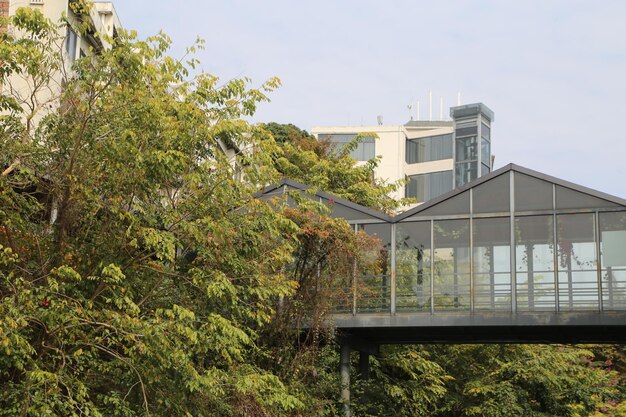Your Guide to How To Find a Green Home Builder
What You Get:
Free Guide
Free, helpful information about Green & Sustainable Housing and related How To Find a Green Home Builder topics.
Helpful Information
Get clear and easy-to-understand details about How To Find a Green Home Builder topics and resources.
Personalized Offers
Answer a few optional questions to receive offers or information related to Green & Sustainable Housing. The survey is optional and not required to access your free guide.
Considering a Green Home Builder? Here's How to Choose the Best One for You
Choosing a green home builder is more than just a step towards sustainability—it's a commitment to your future. As environmental concerns increasingly influence consumer choices, finding the right builder to construct a sustainable and efficient home becomes essential. But how do you begin your search for a reputable green home builder? Here's a guide to help you navigate the process with ease and confidence.
Understand What Makes a Home Builder “Green”
Before you start, it's important to understand what distinguishes a green home builder from a traditional one. Green builders emphasize environmentally friendly construction practices, use sustainable and non-toxic building materials, and focus on energy-efficient techniques. They often incorporate renewable energy sources, such as solar panels, and prioritize water conservation and waste reduction.
Begin with Research and Referrals
To find a reliable green home builder:
Start with Online Searches: Use keywords like "green home builders near me" or "sustainable home construction" for local results. Check their reviews and portfolios to assess their experience in eco-friendly projects.
Ask for Referrals: Reach out to friends, family, or colleagues who have undertaken similar projects. Personal recommendations can be a trustworthy resource.
Join Green Building Forums: Platforms such as forums or social media groups focused on sustainable living can provide insights and builder referrals.
Check Accreditations and Certifications
Look for builders with recognized certifications that vouch for their commitment to sustainability, such as LEED (Leadership in Energy and Environmental Design) or the National Green Building Standard. These accreditations ensure the builders meet high standards in green building practices.
Evaluate Experience and Past Projects
Visiting a builder's past projects can give you a firsthand look at the quality and range of their work. Experience in specific eco-friendly techniques is crucial. A builder familiar with passive solar design or energy-efficient insulation can create a more sustainable home environment.
Engage in an Informative Consultation
Once you've narrowed down your list, schedule consultations. Prepare a list of questions to ask each builder:
- What is your approach to sustainability in construction?
- Can you provide references from previous green home projects?
- How do you manage waste and resource conservation during the build?
- How will you ensure the home's energy efficiency?
Explore Financial Incentives and Support Programs
Building green might seem expensive initially, but various financial aids can make it more affordable:
Government Incentives: Federal or local governments often offer rebates or tax credits for building energy-efficient homes.
Eco-Friendly Mortgage Options: Some lenders provide better rates for energy-efficient constructions.
Energy Efficiency Grants: Check if there are grants available aimed at promoting sustainable building practices.
Exploring these options can significantly influence your budget planning, potentially reducing upfront costs and maximizing your return on investment in the long term.
Consider the Bigger Picture
Selecting a green home builder is a step towards a more sustainable lifestyle, but it also opens up avenues for financial and educational growth. By leveraging available resources and assistance programs, you can ease your financial burden while contributing positively to the environment.
Here's a summary of the potential financial assistance and supportive programs to consider:
- ⚡ Green Tax Credits & Incentives: Check your eligibility for federal and state tax credits.
- 🌱 Eco-Friendly Mortgages: Special loan options for building green homes.
- 🏡 Energy Efficiency Grants: Grants specifically aimed at encouraging eco-friendly building.
- 📚 Educational Programs: Workshops and courses on sustainable living and construction.
Embarking on the journey of building a green home can be rewarding and impactful. By selecting the right builder and utilizing financial assistance tools, you contribute to a sustainable future while securing a comfortable and efficient home environment.
What You Get:
Free Green & Sustainable Housing Guide
Free, helpful information about How To Find a Green Home Builder and related resources.

Helpful Information
Get clear, easy-to-understand details about How To Find a Green Home Builder topics.

Optional Personalized Offers
Answer a few optional questions to see offers or information related to Green & Sustainable Housing. Participation is not required to get your free guide.


Discover More
- Can Green Homes Save You Money? A Cost-Benefit Analysis
- Green Building Certifications: What You Need To Know
- Green Insulation Options For Sustainable Homes
- How To Build a LEED-Certified Home
- How To Build An Eco-Friendly Tiny Home
- How To Choose Sustainable Materials For Home Renovations
- How To Create a Rainwater Harvesting System For Your Home
- How To Create a Sustainable Garden In Your Yard
- How To Get Government Incentives For Green Home Improvements
- How To Incorporate Recycled Materials Into Your Home
